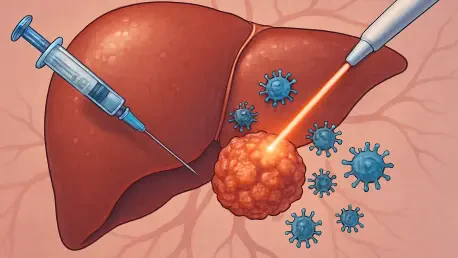
For the first time in over half a century, the fundamental list of nutrients considered indispensable for human life may be on the verge of a historic update, with the candidate being a familiar yet profoundly misunderstood dietary component. A concerted effort by leading nutrition experts is

A groundbreaking therapeutic strategy that combines a systemic targeted drug with a standard locoregional treatment is showing unprecedented promise in preventing the recurrence of hepatocellular carcinoma (HCC) among high-risk patients who have undergone surgery. This comprehensive analysis of a

Today we're speaking with Ivan Kairatov, a biopharma expert with deep insights into the technological innovations shaping modern medicine. We'll be delving into a remarkable breakthrough in oncology: a new, highly targeted procedure for treating metastatic uveal melanoma, a rare and aggressive eye

The pharmaceutical industry is in the midst of a monumental technological pivot, committing billions of dollars to the promise of artificial intelligence agent platforms in a bid to revolutionize its long-standing operational models. Spearheaded by landmark collaborations like the global

The completion of a rolling Biologics License Application (BLA) by Ultragenyx Pharmaceutical Inc. represents a potential turning point for individuals living with Glycogen Storage Disease Type Ia (GSDIa), a relentless genetic disorder. The submission to the U.S. Food and Drug Administration is for

As a biopharma expert deeply embedded in the intersection of technology and research, Ivan Kairatov offers a pragmatic perspective on the integration of artificial intelligence into medicine. He navigates the hype surrounding large language models to focus on the rigorous clinical evaluation needed